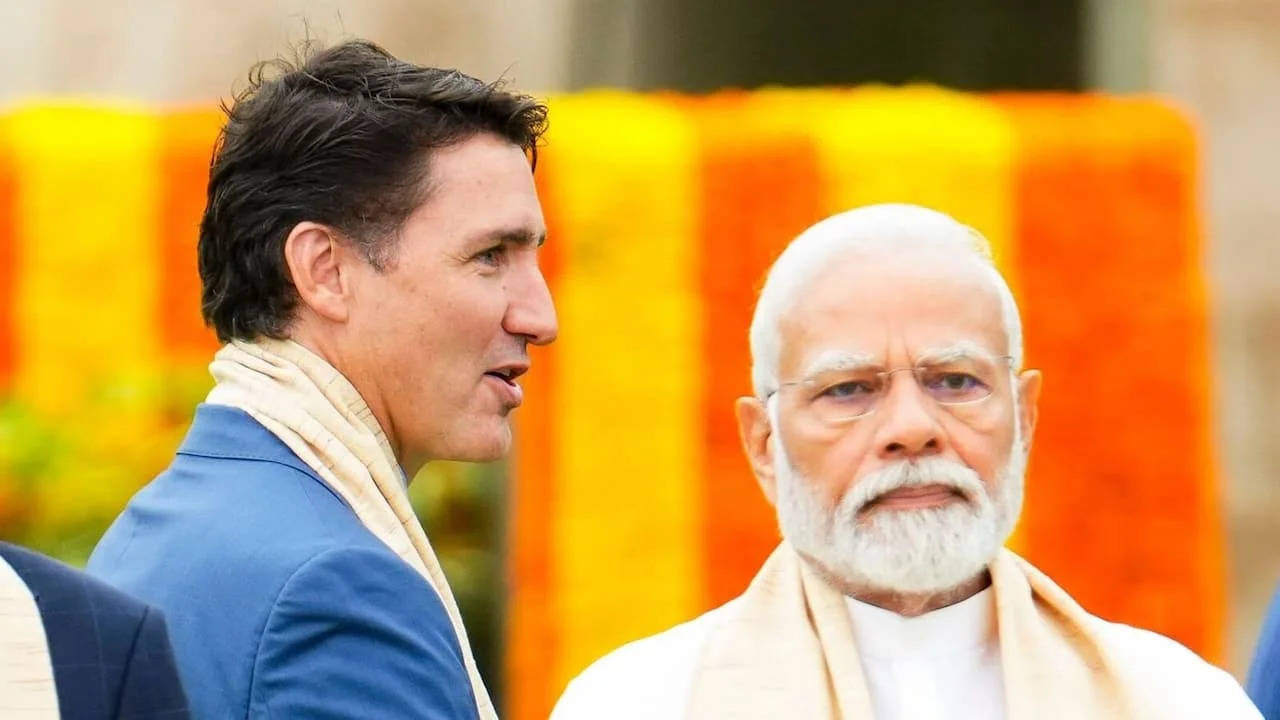
Amid the ongoing diplomatic row between Canada and India, Recalled Indian High Commissioner to Canada, Sanjay Verma, has accused Canadian Prime Minister Justin Trudeau of destroying the ties between the two countries, asserting that he had nothing to do with the killing of a Khalistani separatist and that the charges against him are "politically motivated".
Verma was named as "person of interest" in the killing of Hardeep Singh Nijjar following which Indiaq expelled six Canadian diplomats and announced that it was withdrawing its High Commissioner in Canada Sanjay Kumar Verma.
New Delhi had dismissed Ottawa's allegations linking the envoy to the probe into the killing of Khalistani separatist Hardeep Singh Nijjar.
The recalled envoy said that Trudeau's allegations over Nijjar's killing were based on intelligence inputs rather than concrete evidence. "The problem is that when he accused, he himself admitted there was no hard evidence. There was intelligence. On the basis of intelligence, if you want to destroy a relationship, be my guest. And that's what he (Trudeau) did," Verma said in an interview with Canada's private broadcaster CTV News aired on Sunday.
"Nothing at all. No evidence was presented (by Canada). (This is) politically motivated," the outgoing Indian envoy said when asked by the anchor if he had anything to do with Nijjar's killing.
"Evidence should have been shared first, but someone decided to stand in the Parliament and talk about a thing for which he himself has said there was 'no hard evidence'," Verma said, referring to Trudeau's address in the Canadian Parliament in September last year when he alleged involvement of Indian government's agents in the killing of Nijjar.
"And the day on which he did that, since then, he has made it sure that the bilateral relation with India only goes downwards, spiralling down," the diplomat said.
"No Proof," Admits Trudeau
Nijjar, who was declared a terrorist by India, was shot dead outside a gurdwara in Surrey, British Columbia, on June 18 last year. The relations between the two countries came under severe strain following Trudeau's allegations in September last year of a "potential" involvement of Indian agents in Nijjar's killing.
New Delhi rejected Trudeau's charges as "absurd".
Testifying before the public inquiry into foreign interference in federal electoral processes and democratic institutions last week, Trudeau admitted that he had only intelligence and no "hard evidentiary proof" when he alleged the involvement of Indian government agents in the killing of Nijjar.
Speaking on the issue, the Indian diplomat said Canada didn't follow the practice which should have been there.
India has been maintaining that the main issue between the two countries is that of Canada giving space to pro-Khalistan elements operating from Canadian soil with impunity. Despite numerous concerns raised by India about pro-Khalistan elements being active in Canada long before the ongoing diplomatic row, the Ottawa government either turned a blind eye, or just refused to take any action, allowing anti-India acts to continue.
